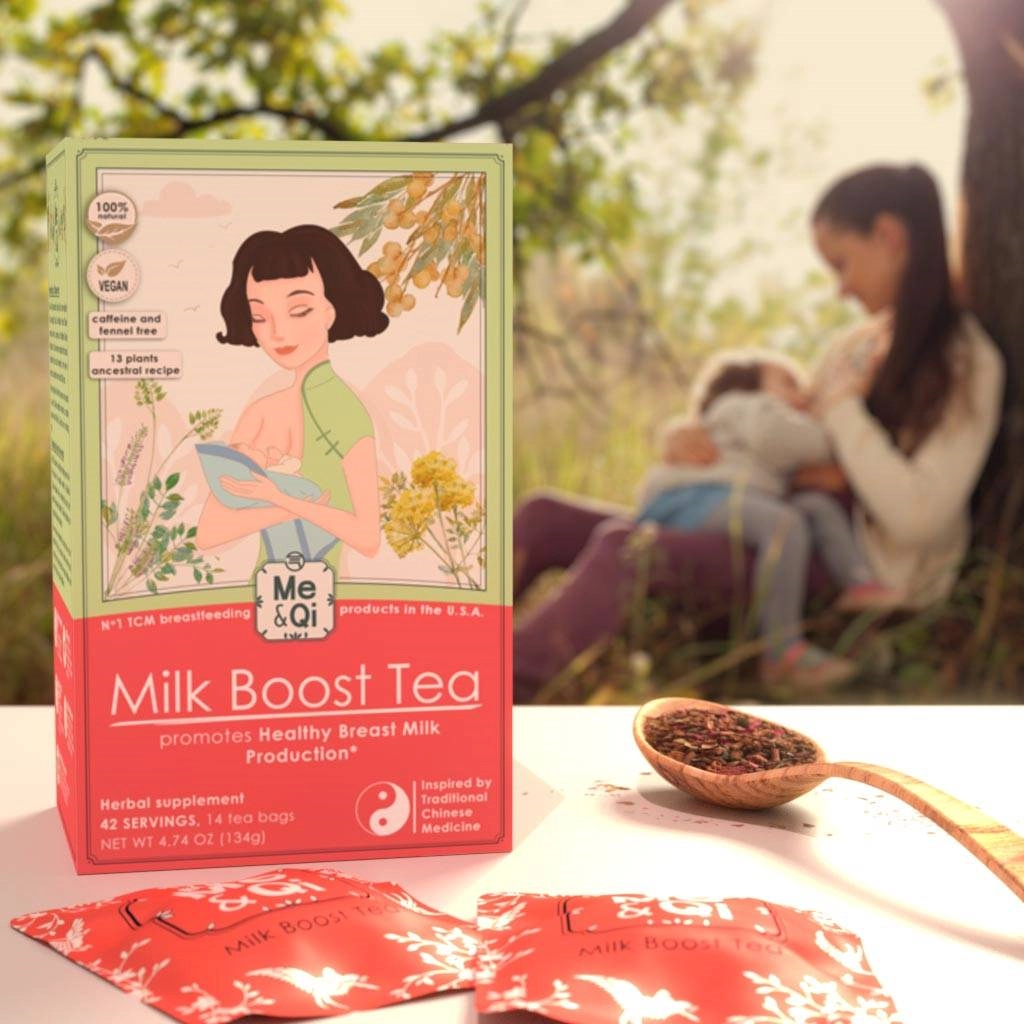Contents
- What is breast milk leaking or colostrum leaking ?
- What are the actual causes of breast milk leaking or colostrum leaking?
- 1. Qi Deficiency
- 2. Stagnant Liver Qi is turning into Fire
- When could breast milk leaking or colostrum leaking happen?
What is breast milk leaking or colostrum leaking ?
It means a spontaneous flow of milk or colostrum from the breasts without getting stimulated by a pumping machine or baby breastfeeding.
What are the actual causes of breast milk leaking or colostrum leaking ?
In the West, there is no research or theory on the cause of breast milk leaking. Some lactation specialists think it might be related to the clothing or bras being too tight, emotional issues, stimulation such as baby crying, etc.
However, this postpartum symptom has long been documented in Chinese Traditional Medicine (TCM) gynaecology books. The primary reasons for leaking breast milk or leaking colostrum are two types of body 'disharmonies': Qi Deficiency or Stagnant Liver Qi turning to Fire.
1. Qi Deficiency
- Other symptoms that can happen simultaneously: low milk supply, no breast distension feeling, poor appetite, watery milk, pale lips and face, and fatigue.
- The theory:
The body's vital substance Qi (similar to 'energy’ in Western terms) is too weak to contain Body Fluids (such as breast milk, menstrual blood, or urine). Thus, the fluids leak out uncontrollably and unnecessarily. It can cause symptoms such as leaking breast milk, heavy periods, or frequent urination.
Postpartum mothers are more likely to suffer from Qi Deficiency if they had a difficult time giving birth, as a lot of energy is used up during the process.
If the mother already has a Qi Deficiency problem in the past, it worsens things. As it is a deficient pattern, the expressed breast milk is usually watery, pale, and diluted.
- Home remedies to stop or prevent breast milk leaking or leaking colostrum:
Relaxing and consuming nutritious meals are essential to recovering Qi. Meats (especially red meat), seafood, and cereals are powerful Qi-boosting foods. If the mother is a vegetarian, she must take special care to consume sufficient protein of vegetable origin.


Milk Boost Tea is an ideal herbal dietary supplement for moms with Qi Deficiency because it includes various herbs that boost Qi, such as King Solomon's seal root (Huang Jin) and Huang Qi.
2. Stagnant Liver Qi is turning into Fire
- Other symptoms that can happen simultaneously: thirst, trouble sleeping, headaches, thick breast milk, constipation, irritability, breast distention, bitter mouth taste, anger, depression, chest and hypochondria pain and fullness.
- The theory:
Since the Liver links to the breasts through the Liver Channel, stagnant Liver Qi causes Fire along the Channel, which agitates the breast milk and causes it to flow out. Given the Excessive nature of the pattern, the milk looks thick and yellowish.
It is quite common for mothers to have Liver Qi Stagnation after giving birth. Emotional stress is a significant contributor to the pattern. For new mothers, adapting to a new routine, lacking sleep, and seeing one's life shift entirely may add to a challenging time. In addition, the situation often worsens if the mothers constantly worry about their poor milk production.
- Home remedies to stop or prevent breast milk leaking or leaking colostrum:
The mother needs to smooth the Liver Qi by adapting better to the new life, expressing her struggles with friends and families, letting people help with the newborn, etc.
Also, Milk Boost Tea is an excellent herbal recipe to promote Qi flow in the Liver. It includes numerous herbs stimulating Qi movement, such as Flowering quince fruit (Mu Gua), which works on the Liver.
When could breast milk leaking or colostrum leaking happen?
It could happen as early as during pregnancy, for example, during the 2nd trimester (months 3-6). At that stage, it is the colostrum that leaks.
Colostrum is the very first milk the mother expresses after giving birth. Its distinctive yellow-orange color distinguishes it. It often occurs during the first 2–5 days postpartum and gets replaced by regular white breast milk.
Breast milk production is triggered by the level changes of three hormones, progesterone, estrogen, and prolactin. The prolactin level increases during pregnancy, leading to colostrum as early as the 2nd trimester. This situation is not bad, as the leaking volume is generally unsubstantial.

